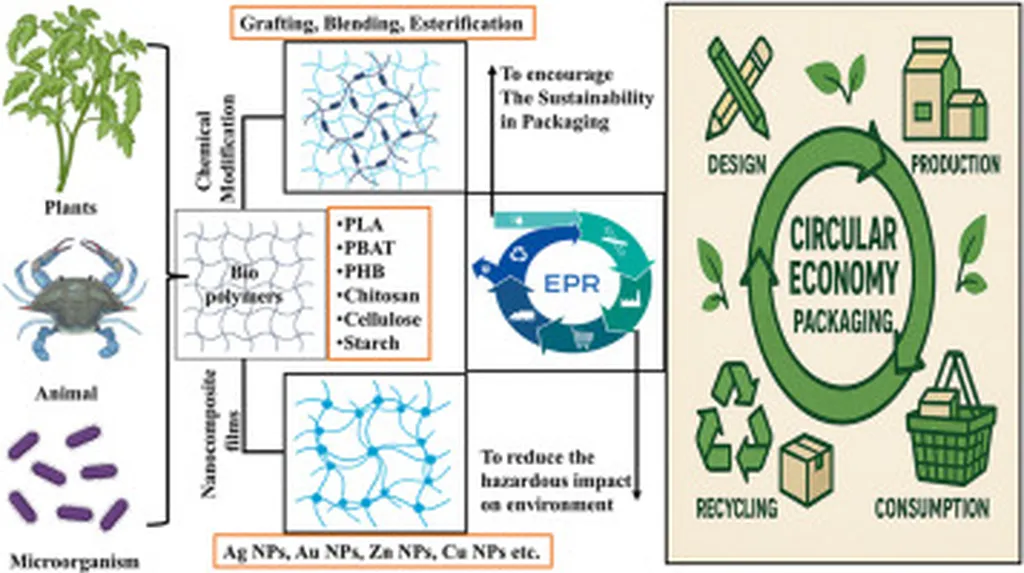In a groundbreaking development that could revolutionize the packaging industry, researchers have successfully created a novel bionanocomposite material using thermoplastic starch (TPS), montmorillonite (MMT) nanoclay, and coconut oil (CO). This innovation, led by Carlos Henrique Rodrigues Milfont from the Federal University of Viçosa, Brazil, opens up new possibilities for sustainable and efficient packaging solutions, particularly for perishable fruits like strawberries.
The study, published in the journal ‘Materials Research’ (translated from Portuguese as ‘Pesquisa em Materiais’), demonstrates how the incorporation of MMT nanoclay and CO into TPS can significantly enhance the material’s properties. By employing extrusion techniques, the researchers were able to create a polymer bionanocomposite with an intercalated and partially exfoliated structure, which contributes to improved mechanical and barrier properties.
One of the most notable findings of this research is the synergistic effect between MMT and CO in reducing the hydrophilic character of the polymer bionanocomposite. This means that the material becomes less absorbent to water, a crucial factor for packaging applications where moisture control is essential. “The water absorption test revealed that the combination of MMT and CO effectively reduces the hydrophilic nature of the material,” explained Milfont. “This is a significant step forward in developing packaging materials that can better protect perishable goods.”
The study also highlighted the impact of MMT and CO on the mechanical properties of the bionanocomposite. Tensile tests showed that the addition of these components improved the material’s strength and durability, making it more suitable for practical applications. Scanning electron microscopy (SEM) further revealed that the inclusion of MMT destroyed CO droplets, resulting in a rougher and more uniform surface, which is beneficial for packaging materials.
The potential commercial impacts of this research are substantial. The development of sustainable packaging materials that can extend the shelf life of perishable fruits is a game-changer for the food industry. “Our findings suggest that TPS/MMT/CO bionanocomposites have great potential for use in packaging films for fruits like strawberries,” said Milfont. “This could lead to reduced food waste and improved product quality, benefiting both consumers and producers.”
Moreover, the use of sustainable materials in the production of these bionanocomposites aligns with the growing demand for eco-friendly solutions in various industries. As the world shifts towards more sustainable practices, innovations like this are crucial for driving progress in the energy and packaging sectors.
This research not only highlights the importance of interdisciplinary collaboration but also underscores the potential of natural materials in developing advanced functional materials. The findings pave the way for further exploration and optimization of bionanocomposites, potentially leading to a wide range of applications beyond packaging.
As the world continues to seek sustainable and efficient solutions, the work of Milfont and his team serves as a beacon of innovation, inspiring further research and development in the field of bionanocomposites. The journey towards a more sustainable future is underway, and this research is a significant step in that direction.

